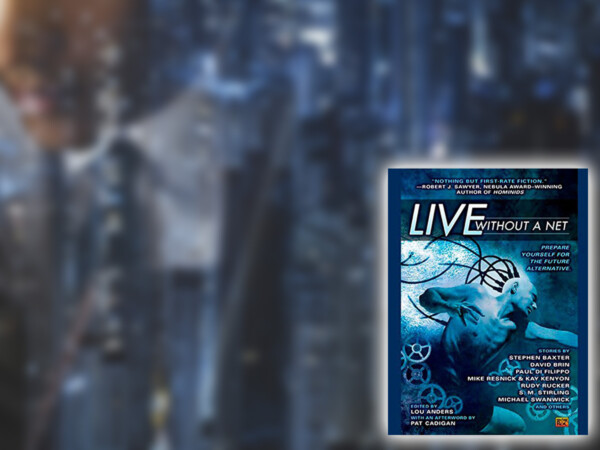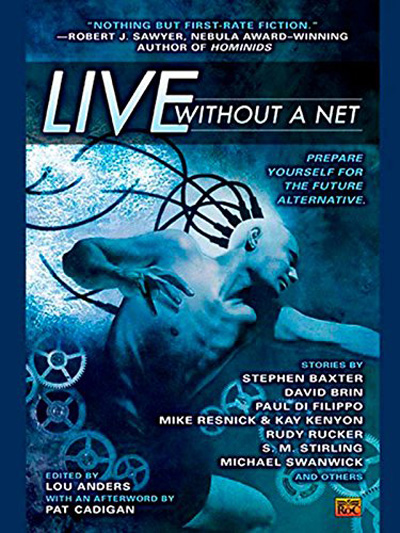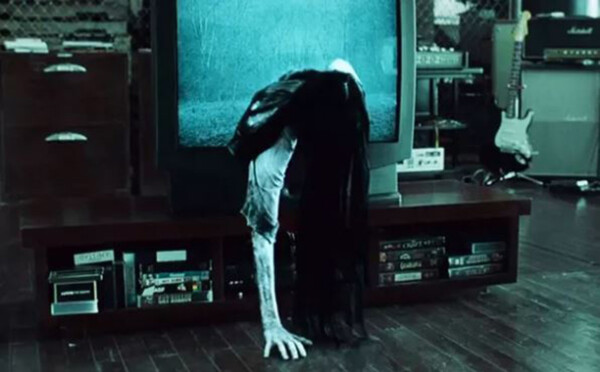Dying in TV shows and movies ain’t what it used to be
Today’s topic is so weighty it will tilt the earth on its axis: the evolution of the TV and movie death scene.
In a more innocent time, an actor died with dignity. A gunshot victim, for instance, would clutch his chest as if a microwaved burrito were causing his pacemaker to do the Robot, then fall gracefully to the ground so that the shooter could hover nearby while the shoot-ee revealed the valuable moral lesson imparted to him by the hollow-tipped .38 slug. “You have redeemed me,” the shoot-ee would gasp. “I will never remove the tag from a mattress again – and that’s not just because I’m dying.” Then the shoot-ee would close his eyes as the shooter wiped away a tear and filed a report with the Serta Corporation.
The next step in TV and movie death scene evolution was the open-eye death. The shoot-ee would die and he would stare into infinity, his eyes glazed, the way people look at their telephone bills. The shooter would run his hand over the eyelids to close them, as if he felt watched, and a violin soundtrack would reach a crescendo of screeching as the shooter and the audience simultaneously realized that death can certain put the kibosh on that snorkeling trip to the Caymans.
Then we had the violent death where gunshot victims were knocked backward by the force the bullet’s impact the same way you get knocked backward when you step out of the shower dripping wet and plug in the blow dryer. The problem in the kocking-backward part never seems to synch with the shooting part – the gun fires and a too-late second afterward, the person gets knocked back. It’s like watching a Japanese monster movie dubbed into English.
The next evolution of TV and movie death scenes was epitomized by “Saving Private Ryan,” which I recently watched as a snub to the FCC. That’ll show ’em. In “Saving Private Ryan:” we encounter the gory realistic death scene. Every single way a person can die was used in that movie and they were all very bloody and grotesque, like watching Richard Simmons squeeze himself into a Spandex tutu.
Right now my favorite TV and move death scene occurs in “Dawn of the Dead.” In this scene, the driver of a panel truck is trying to back it up to a loading dock while being attacked by zombies. You gotta figure the driving isn’t going to be by the book (unless it’s New York state’s “Driving Manual for Snowbirds Wintering in Florida book). Indeed, while back up the truck at about 40 mph they run over several zombies who are sprinting toward the truck. I’ve watch that scene many times trying to figure out how they did it. Best I can tell they got several contestants from “Fear Factor” to attempt a truckjacking and we got to watch the losers.
Frankly I don’t want to know how people look or act when they die, unless it’s Sean Hayes’ character on “Will & Grace.” That little creep can even leave his eyes open.
The column was originally published in the December 6, 2003 edition of the Northwest Florida Daily News and is used with permission.
About the author:
Del Stone Jr. is a professional fiction writer. He is known primarily for his work in the contemporary dark fiction field, but has also published science fiction and contemporary fantasy. Stone’s stories, poetry and scripts have appeared in publications such as Amazing Stories, Eldritch Tales, and Bantam-Spectra’s Full Spectrum. His short fiction has been published in The Year’s Best Horror Stories XXII; Alfred Hitchcock’s Mystery Magazine; the Pocket Books anthology More Phobias; the Barnes & Noble anthologies 100 Wicked Little Witch Stories, Horrors! 365 Scary Stories, and 100 Astounding Little Alien Stories; the HWA anthology Psychos; and other short fiction venues, like Blood Muse, Live Without a Net, Zombiesque and Sex Macabre. Stone’s comic book debut was in the Clive Barker series of books, Hellraiser, published by Marvel/Epic and reprinted in The Best of Hellraiser anthology. He has also published stories in Penthouse Comix, and worked with artist Dave Dorman on many projects, including the illustrated novella “Roadkill,” a short story for the Andrew Vachss anthology Underground from Dark Horse, an ashcan titled “December” for Hero Illustrated, and several of Dorman’s Wasted Lands novellas and comics, such as Rail from Image and “The Uninvited.” Stone’s novel, Dead Heat, won the 1996 International Horror Guild’s award for best first novel and was a runner-up for the Bram Stoker Award. Stone has also been a finalist for the IHG award for short fiction, the British Fantasy Award for best novella, and a semifinalist for the Nebula and Writers of the Future awards. His stories have appeared in anthologies that have won the Bram Stoker Award and the World Fantasy Award. Two of his works were optioned for film, the novella “Black Tide” and short story “Crisis Line.”
Stone recently retired after a 41-year career in journalism. He won numerous awards for his work, and in 1986 was named Florida’s best columnist in his circulation division by the Florida Society of Newspaper Editors. In 2001 he received an honorable mention from the National Lesbian and Gay Journalists Association for his essay “When Freedom of Speech Ends” and in 2003 he was voted Best of the Best in the category of columnists by Emerald Coast Magazine. He participated in book signings and awareness campaigns, and was a guest on local television and radio programs.
As an addendum, Stone is single, kills tomatoes and morning glories with ruthless efficiency, once tied the stem of a cocktail cherry in a knot with his tongue, and carries a permanent scar on his chest after having been shot with a paintball gun. He’s in his 60s as of this writing but doesn’t look a day over 94.
Contact Del at [email protected]. He is also on Facebook, twitter, Pinterest, tumblr, TikTok, and Instagram. Visit his website at delstonejr.com .

Image courtesy of Picryl by way of a Creative Commons license.
Husband: Hello, Honey Bunny. Guess where I’m standing? <Chirp!>
Wife: Hi, Sunggle-Icious. You’re standing in line at the grocery store checkout. <Chirp!>
H: Ha, ha! You cheated, Snooky-Ookems. You peeked at the camera on my new walkie-talkie cell phone. And I can see you worming the cat. <Chirp!>
W: That’s right, Lovey Dovey. Aren’t these walkie-talkie cell phones the greatest? <Chirp!>
H: They sure are, Babe-A-Licious. Now, we can annoy nearby people with obnoxious cell phone ring tones AND inflict our insipid, banal conversations on them at the same time. <Chirp!>
W: And don’t forget that aggravating electronic chirp that falls at the end of each message, Kissy Sissy.
H: Now, now, Wiggy Waggle. Don’t call me “Kissy Sissy.” You know how that aggravates me – almost as much as your sister, who called me yesterday while I was standing in a crowded elevator and described in exCRUCiating detail the process of having those boils on her lips lanced. <Chirp!>
W: For the record, Sweet Cakes, my sister is no more aggravating than YOUR mother, who called while I was driving our carpool to work and told me a revolting story about the dog horking in the minister’s lap. <Chirp!>
H: Is that right, Snagglepuss? I was having lunch with a client last week when YOUR father called to give me an update on his hernia examination. <Chirp!>
W: “Snagglepuss”? Well, Mr. Toenail Fungus, I should point out that the man in line ahead of you is hefting a clump of broccoli, and I don’t think it’s MY skull he wants to bash in. <Chirp!>
H: Maybe he’s just tired of hearing the TV from your end blaring, “Jer-EEE, Jer-EEE, Jer-EEE,” my little Nasal Obstruction. <Chirp!>
W: Either that or he’s finally detected the fact that you’re incontinent, Groat Boy. <Chirp!>
H; OK, Scrag Hag. If you’re going to discuss my humiliating bodily functions in public, I’m going to discuss those nostril hairs you trim with a Weed Whacker. <Chirp!>
W: Listen, you Bottom-Feeding Gack Hound: You discuss my nasal hairs and I’m going to discuss your third nipple. <Chirp!>
H: Land I will discuss your naval that resembles Mount Rushmore, got it, Abe? <Chirp!>
W: And what about that mole on your neck that resembles Richard Nixon, Scuzz Knuckle? <Chirp!>
H: Liver Fluke. <Chirp!>
W. Weasel Face. <Chirp!>
H: Lizard Lips. <Chirp!>
W: Bunion Onion. <Chirp!>
H: That reminds me … the store has Vidalia onions at half price. Would you like a bag? <Chirp!>
W: Oh, Snicker Doodle, that would be wonderful. I’ll make a blossoming onion for you and the guys before the game. <Chirp!>
H: Would you? Oh, Snuggle Bunny, that would be perfect. I’ll be home soon. All the people in line ahead of me have mysteriously disappeared. Aren’t these walkie-talkie cell phones great? <Chirp!>
W: They certainly are, Kissy Sissy. <Chirp!>
This column was originally published in the Saturday, Nov. 8, 2003 edition of the Northwest Florida Daily News and is used with permission.
About the author:
Del Stone Jr. is a professional fiction writer. He is known primarily for his work in the contemporary dark fiction field, but has also published science fiction and contemporary fantasy. Stone’s stories, poetry and scripts have appeared in publications such as Amazing Stories, Eldritch Tales, and Bantam-Spectra’s Full Spectrum. His short fiction has been published in The Year’s Best Horror Stories XXII; Alfred Hitchcock’s Mystery Magazine; the Pocket Books anthology More Phobias; the Barnes & Noble anthologies 100 Wicked Little Witch Stories, Horrors! 365 Scary Stories, and 100 Astounding Little Alien Stories; the HWA anthology Psychos; and other short fiction venues, like Blood Muse, Live Without a Net, Zombiesque and Sex Macabre. Stone’s comic book debut was in the Clive Barker series of books, Hellraiser, published by Marvel/Epic and reprinted in The Best of Hellraiser anthology. He has also published stories in Penthouse Comix, and worked with artist Dave Dorman on many projects, including the illustrated novella “Roadkill,” a short story for the Andrew Vachss anthology Underground from Dark Horse, an ashcan titled “December” for Hero Illustrated, and several of Dorman’s Wasted Lands novellas and comics, such as Rail from Image and “The Uninvited.” Stone’s novel, Dead Heat, won the 1996 International Horror Guild’s award for best first novel and was a runner-up for the Bram Stoker Award. Stone has also been a finalist for the IHG award for short fiction, the British Fantasy Award for best novella, and a semifinalist for the Nebula and Writers of the Future awards. His stories have appeared in anthologies that have won the Bram Stoker Award and the World Fantasy Award. Two of his works were optioned for film, the novella “Black Tide” and short story “Crisis Line.”
Stone recently retired after a 41-year career in journalism. He won numerous awards for his work, and in 1986 was named Florida’s best columnist in his circulation division by the Florida Society of Newspaper Editors. In 2001 he received an honorable mention from the National Lesbian and Gay Journalists Association for his essay “When Freedom of Speech Ends” and in 2003 he was voted Best of the Best in the category of columnists by Emerald Coast Magazine. He participated in book signings and awareness campaigns, and was a guest on local television and radio programs.
As an addendum, Stone is single, kills tomatoes and morning glories with ruthless efficiency, once tied the stem of a cocktail cherry in a knot with his tongue, and carries a permanent scar on his chest after having been shot with a paintball gun. He’s in his 60s as of this writing but doesn’t look a day over 94.
Contact Del at [email protected]. He is also on Facebook, twitter, Pinterest, tumblr, TikTok, Ello and Instagram. Visit his website at delstonejr.com .

Image courtesy of Flickr user jridgewayphotograph by way of a Creative Commons license. https://www.flickr.com/photos/jridgewayphotos/
About halfway through today’s Pulitzer contender you will mutter, “Stone, you dunce. You don’t have the sense God gave the clown known as ‘Idiot Face.’ ”
I was paying bills in my post-work fugue state. I’m sure you’re familiar with the syndrome. It should have a Latin name – Workus Exhaustus Twilightzonatorum.
Two checks – one for rent, one for Gulf Power. I did the math (using a calculator … I haven’t been able to subtract in my head since second grade), put them in the envelopes and managed to get the stamps in place without permanently adhering myself to the microwave oven (can you imagine how miserable life would be with people constantly bugging you to heat up their burritos?).
Two days later I got a call from my landlord. “We got your Gulf Power check.”
&#@%$! That meant Gulf Power had gotten my rent check. How could I have been so stupid as to put the wrong check in the wrong envelope? Then a memory came filtering back, of a model airplane melting in the oven. THAT is how stupid I could have been.
I called Gulf Power’s corporate office to find out what they’d done with my rent.
“We show a $500 credit to your account,” the representative told me.
Holy cow! Not only had I put the wrong check in the wrong envelope, I’d made out the rent check to Gulf Power! I must have REALLY been tired – either that or I’d stopped off on the way home for a lobotomy.
Much as I like Gulf Power, I really couldn’t afford to pay them a five-month advance, so I shagged it to their local office for a refund.
By a stroke of dumb luck, I found my checkbook in the car. I looked at the carbon. Wait a minute! The rent check WAS made out to my landlord!
Somehow, Gulf Power’s bank had cashed a check that wasn’t made out to Gulf Power.
I hasten to add that Gulf Power was more than happy to refund the balance. Don’t be mad at me, Gulf Power. I LOVE electricity, especially the electricity flowing to my AC and my nostril-hair trimmer.
But I asked a friend at Eglin Federal Credit Union how such a thing could happen. She arched her eyebrows.
“They’re not supposed to do that,” she answered gravely.
A copy of the check revealed it was the Bank of America in Jacksonville that done the processing.
I talked to Mitch Lubitz, a Bank of America media relations guy in Tampa, who explained the check-processing system is automated.
“They’re not manually looked at,” he said, adding the Jacksonville bank processes about 34 MILLION checks a month.
If I had to do 34 million of anything I’d probably screw up 50 million times.
OK. Mystery solved. I’m not fussing anymore.
I just hope I don’t mix up the Gulf Power check with the snotty note I wrote about the person at work who stole my Diet Coke from the break room refrigerator.
This column was originally published in the October 11, 2003 Northwest Florida Daily News and is used with permission.
About the author:
Del Stone Jr. is a professional fiction writer. He is known primarily for his work in the contemporary dark fiction field, but has also published science fiction and contemporary fantasy. Stone’s stories, poetry and scripts have appeared in publications such as Amazing Stories, Eldritch Tales, and Bantam-Spectra’s Full Spectrum. His short fiction has been published in The Year’s Best Horror Stories XXII; Alfred Hitchcock’s Mystery Magazine; the Pocket Books anthology More Phobias; the Barnes & Noble anthologies 100 Wicked Little Witch Stories, Horrors! 365 Scary Stories, and 100 Astounding Little Alien Stories; the HWA anthology Psychos; and other short fiction venues, like Blood Muse, Live Without a Net, Zombiesque and Sex Macabre. Stone’s comic book debut was in the Clive Barker series of books, Hellraiser, published by Marvel/Epic and reprinted in The Best of Hellraiser anthology. He has also published stories in Penthouse Comix, and worked with artist Dave Dorman on many projects, including the illustrated novella “Roadkill,” a short story for the Andrew Vachss anthology Underground from Dark Horse, an ashcan titled “December” for Hero Illustrated, and several of Dorman’s Wasted Lands novellas and comics, such as Rail from Image and “The Uninvited.” Stone’s novel, Dead Heat, won the 1996 International Horror Guild’s award for best first novel and was a runner-up for the Bram Stoker Award. Stone has also been a finalist for the IHG award for short fiction, the British Fantasy Award for best novella, and a semifinalist for the Nebula and Writers of the Future awards. His stories have appeared in anthologies that have won the Bram Stoker Award and the World Fantasy Award. Two of his works were optioned for film, the novella “Black Tide” and short story “Crisis Line.”
Stone recently retired after a 41-year career in journalism. He won numerous awards for his work, and in 1986 was named Florida’s best columnist in his circulation division by the Florida Society of Newspaper Editors. In 2001 he received an honorable mention from the National Lesbian and Gay Journalists Association for his essay “When Freedom of Speech Ends” and in 2003 he was voted Best of the Best in the category of columnists by Emerald Coast Magazine. He participated in book signings and awareness campaigns, and was a guest on local television and radio programs.
As an addendum, Stone is single, kills tomatoes and morning glories with ruthless efficiency, once tied the stem of a cocktail cherry in a knot with his tongue, and carries a permanent scar on his chest after having been shot with a paintball gun. He’s in his 60s as of this writing but doesn’t look a day over 94.
Contact Del at [email protected]. He is also on Facebook, twitter, Pinterest, tumblr, TikTok, Ello and Instagram. Visit his website at delstonejr.com .

Image courtesy of pxfuel.
—
I don’t imagine Thursday, the first day of school, was much fun for a certain group of IB students at Choctawhatchee High School.
To bring you up to speed, the students were quoted in a story that appeared on the July 17 Whatever page about the new 18-credit high school diploma program approved by the Florida Legislature. The kids were asked their opinion of the new program.
To put it bluntly, they hated it … and used a few choice words to describe their disfavor, words about lazy students skating by, and kids growing up to be janitors and trash men.
As you might expect, those remarks triggered an angry response from both teenagers and adults. The Daily News received a number of letters to the editor taking the kids to task for their apparent arrogance and elitism.
I don’t know what was said to the kids on Day 1 of the school year, but I can’t imagine it was much fun either. Teens sometimes have an infinite capacity for cruelty. And some adults too, it seems.
I think it’s time to lay off.
If you want to be mad at somebody, be mad at me. I’m the guy who approved and edited the story, and apart from a few poorly chosen words, I agree with much of what the students said.
I don’t think their comments about janitors and trash men were appropriate. Any job is honorable, and janitors and trash men perform a service that’s essential to our existence. Without them we would all be janitors and trash men.
I have friends who are janitors and trash men, and they’re no dummies. One fellow I know could teach college-level philosophy.
But I can understand why the kids made those remarks. They’ve been taught all their lives that without a good education they’d grow up to perform some low-paying job. That’s a standard belief in our culture. Can the kids be penalized for repeating what they’ve been taught?
As for their “arrogance,” let me ask you this: What’s the IB program all about? More difficult courses and smarter students, isn’t it? In these days of preening sports “stars” and entertainers who make heroes of themselves for their drug addictions, can the kids be penalized for admitting they work harder and get better grades?
But I have bigger gripes. My real problem with some of the criticism inflicted on these kids is that it reeks of the righteous wrath you see from people who are hungry to draw attention to themselves.
It’s OK for kids to respond to kids, but I don’t understand what in the world would compel an ADULT to submit a letter to the editor critical of something a kid said or wrote on the Whatever page. Most adults I know would read the kids’ remarks, tell themselves, “Well, there’s a kid talking,” and move on to more adult parts of the newspaper, such as the comics.
Certain levels of humility and civility are expected of us all, letter writers included.
So give the kids a break and lay off.
(This column was previously published in the August 9, 2003 Northwest Florida Daily News.)
About the author:
Del Stone Jr. is a professional fiction writer. He is known primarily for his work in the contemporary dark fiction field, but has also published science fiction and contemporary fantasy. Stone’s stories, poetry and scripts have appeared in publications such as Amazing Stories, Eldritch Tales, and Bantam-Spectra’s Full Spectrum. His short fiction has been published in The Year’s Best Horror Stories XXII; Alfred Hitchcock’s Mystery Magazine; the Pocket Books anthology More Phobias; the Barnes & Noble anthologies 100 Wicked Little Witch Stories, Horrors! 365 Scary Stories, and 100 Astounding Little Alien Stories; the HWA anthology Psychos; and other short fiction venues, like Blood Muse, Live Without a Net, Zombiesque and Sex Macabre. Stone’s comic book debut was in the Clive Barker series of books, Hellraiser, published by Marvel/Epic and reprinted in The Best of Hellraiser anthology. He has also published stories in Penthouse Comix, and worked with artist Dave Dorman on many projects, including the illustrated novella “Roadkill,” a short story for the Andrew Vachss anthology Underground from Dark Horse, an ashcan titled “December” for Hero Illustrated, and several of Dorman’s Wasted Lands novellas and comics, such as Rail from Image and “The Uninvited.” Stone’s novel, Dead Heat, won the 1996 International Horror Guild’s award for best first novel and was a runner-up for the Bram Stoker Award. Stone has also been a finalist for the IHG award for short fiction, the British Fantasy Award for best novella, and a semifinalist for the Nebula and Writers of the Future awards. His stories have appeared in anthologies that have won the Bram Stoker Award and the World Fantasy Award. Two of his works were optioned for film, the novella “Black Tide” and short story “Crisis Line.”
Stone recently retired after a 41-year career in journalism. He won numerous awards for his work, and in 1986 was named Florida’s best columnist in his circulation division by the Florida Society of Newspaper Editors. In 2001 he received an honorable mention from the National Lesbian and Gay Journalists Association for his essay “When Freedom of Speech Ends” and in 2003 he was voted Best of the Best in the category of columnists by Emerald Coast Magazine. He participated in book signings and awareness campaigns, and was a guest on local television and radio programs.
As an addendum, Stone is single, kills tomatoes and morning glories with ruthless efficiency, once tied the stem of a cocktail cherry in a knot with his tongue, and carries a permanent scar on his chest after having been shot with a paintball gun. He’s in his 60s as of this writing but doesn’t look a day over 94.
Contact Del at [email protected]. He is also on Facebook, twitter, Pinterest, tumblr, TikTok, Ello and Instagram. Visit his website at delstonejr.com .

Photo courtesy of Del Stone Jr.
—
Wednesday was Take the Cats to the Vet Day.
Lest you think this is a trivial subject unworthy of a column, let me assure you I am tired of solving world peace, curing fatal diseases or fending off overtures from Jennifer Lopez or the Republican National Committee.
Besides, preparing for this trip required more planning than D-Day.
To say, “The cats don’t like going to the vet” is like saying, “Godzilla doesn’t like Tokyo,” meaning these normally placid animals are transformed into screeching, fur-covered Obama bin Ladens once the pet carriers come out of the closet.
Worse, these cats, Pavlov and Maggie, are fully mission-capable – they have fangs and claws, and they know how to use hem. All allegiances are off on Vet Day.
My first step was to close all the doors in the house while the cats napped blissfully in the living room. They instantly knew something was up. Maybe I was giving off Vet Vibes. But they slunk off to parts unknown – until they realized I’d cut off all their hiding places.
That’s when the screeching began.
I managed to get them into the pet carriers. Maggie has a set of claws that would cause Jack the Ripper to swoon with envy, and she likes to rake them across my wrists, which I think would make her an excellent interrogator of Iraqi POWs. But I successfully dodged her attempts to blood me and headed out for the vet.
In Destin.
Traffic, to put it delicately, sucked. A rainy Wednesday afternoon and it was wall-to-wall SUVs and vans from places like Tennessee, George and Hell. The wailing of damned souls from the back seat seemed the perfect musical accompaniment to road conditions.
As we crept into Destin I heard the sound of a kitty stomach being emptied inside the pet carrier. To quote an old Richard Pryor album, “The funk rolled out – it knocked me to my $@%& knees!” Now I was wailing.
A mere 43 minutes later we arrived at the vet’s office, where I spent the next 15 minutes trying to conceal the evidence of Palov’s indiscretion. “Oh, don’t worry about it,” said the vet, who explained she’d been covered with every disgusting substance an animal can emit. She went on to relate a truly gross story about her assistant getting hit in the eye by something so utterly revolting that even I can’t repeat it.
Four inoculations, two collar tags and a credit card swipe later, we were creeping back to Fort Walton Beach. The out-of-town drivers were in full Bonehead Mode. Something about a vacation lobotomizes the courtesy lobe of one’s brain, I guess.
When I got the cats home they crashed, I cleaned out their carriers – Windex was OK but what I needed was a flame-thrower – and then I, like the ungrateful beasts, crashed.
But at least now they won’t give me rabies. Existential angst, maybe. But not rabies.
About the author:
Del Stone Jr. is a professional fiction writer. He is known primarily for his work in the contemporary dark fiction field, but has also published science fiction and contemporary fantasy. Stone’s stories, poetry and scripts have appeared in publications such as Amazing Stories, Eldritch Tales, and Bantam-Spectra’s Full Spectrum. His short fiction has been published in The Year’s Best Horror Stories XXII; Alfred Hitchcock’s Mystery Magazine; the Pocket Books anthology More Phobias; the Barnes & Noble anthologies 100 Wicked Little Witch Stories, Horrors! 365 Scary Stories, and 100 Astounding Little Alien Stories; the HWA anthology Psychos; and other short fiction venues, like Blood Muse, Live Without a Net, Zombiesque and Sex Macabre. Stone’s comic book debut was in the Clive Barker series of books, Hellraiser, published by Marvel/Epic and reprinted in The Best of Hellraiser anthology. He has also published stories in Penthouse Comix, and worked with artist Dave Dorman on many projects, including the illustrated novella “Roadkill,” a short story for the Andrew Vachss anthology Underground from Dark Horse, an ashcan titled “December” for Hero Illustrated, and several of Dorman’s Wasted Lands novellas and comics, such as Rail from Image and “The Uninvited.” Stone’s novel, Dead Heat, won the 1996 International Horror Guild’s award for best first novel and was a runner-up for the Bram Stoker Award. Stone has also been a finalist for the IHG award for short fiction, the British Fantasy Award for best novella, and a semifinalist for the Nebula and Writers of the Future awards. His stories have appeared in anthologies that have won the Bram Stoker Award and the World Fantasy Award. Two of his works were optioned for film, the novella “Black Tide” and short story “Crisis Line.”
Stone recently retired after a 41-year career in journalism. He won numerous awards for his work, and in 1986 was named Florida’s best columnist in his circulation division by the Florida Society of Newspaper Editors. In 2001 he received an honorable mention from the National Lesbian and Gay Journalists Association for his essay “When Freedom of Speech Ends” and in 2003 he was voted Best of the Best in the category of columnists by Emerald Coast Magazine. He participated in book signings and awareness campaigns, and was a guest on local television and radio programs.
As an addendum, Stone is single, kills tomatoes and morning glories with ruthless efficiency, once tied the stem of a cocktail cherry in a knot with his tongue, and carries a permanent scar on his chest after having been shot with a paintball gun. He’s in his 60s as of this writing but doesn’t look a day over 94.
Contact Del at [email protected]. He is also on Facebook, twitter, Pinterest, tumblr, TikTok, Ello and Instagram. Visit his website at delstonejr.com .

[ Cover image courtesy of rawpixel.com . ]
From Amazon:
Imagine a future without cyberspace or without the Web or virtual reality. What would happen in an alternate Information Age? What would you do? What would you fear? What wouldn’t you know?

Today’s top masters of speculative fiction offer visions of futures near and far, of alternative histories, and journeys down roads not taken. What does await us at the end of a different tunnel? What would we find in dimensions where the inevitable vastness of cyberspace has been replaced by things surprising and strange? Welcome to science fiction unplugged, and set free to be.
“Live Without a Net” contains works by such standout science fiction authors as Lou Anders, John Grant, Matthew Sturges, and many more!
About the author:
Del Stone Jr. is a professional fiction writer. He is known primarily for his work in the contemporary dark fiction field, but has also published science fiction and contemporary fantasy. Stone’s stories, poetry and scripts have appeared in publications such as Amazing Stories, Eldritch Tales, and Bantam-Spectra’s Full Spectrum. His short fiction has been published in The Year’s Best Horror Stories XXII; Alfred Hitchcock’s Mystery Magazine; the Pocket Books anthology More Phobias; the Barnes & Noble anthologies 100 Wicked Little Witch Stories, Horrors! 365 Scary Stories, and 100 Astounding Little Alien Stories; the HWA anthology Psychos; and other short fiction venues, like Blood Muse, Live Without a Net, Zombiesque and Sex Macabre. Stone’s comic book debut was in the Clive Barker series of books, Hellraiser, published by Marvel/Epic and reprinted in The Best of Hellraiser anthology. He has also published stories in Penthouse Comix, and worked with artist Dave Dorman on many projects, including the illustrated novella “Roadkill,” a short story for the Andrew Vachss anthology Underground from Dark Horse, an ashcan titled “December” for Hero Illustrated, and several of Dorman’s Wasted Lands novellas and comics, such as Rail from Image and “The Uninvited.” Stone’s novel, Dead Heat, won the 1996 International Horror Guild’s award for best first novel and was a runner-up for the Bram Stoker Award. Stone has also been a finalist for the IHG award for short fiction, the British Fantasy Award for best novella, and a semifinalist for the Nebula and Writers of the Future awards. His stories have appeared in anthologies that have won the Bram Stoker Award and the World Fantasy Award. Two of his works were optioned for film, the novella “Black Tide” and short story “Crisis Line.”
Stone recently retired after a 41-year career in journalism. He won numerous awards for his work, and in 1986 was named Florida’s best columnist in his circulation division by the Florida Society of Newspaper Editors. In 2001 he received an honorable mention from the National Lesbian and Gay Journalists Association for his essay “When Freedom of Speech Ends” and in 2003 he was voted Best of the Best in the category of columnists by Emerald Coast Magazine. He participated in book signings and awareness campaigns, and was a guest on local television and radio programs.
As an addendum, Stone is single, kills tomatoes and morning glories with ruthless efficiency, once tied the stem of a cocktail cherry in a knot with his tongue, and carries a permanent scar on his chest after having been shot with a paintball gun. He’s in his 60s as of this writing but doesn’t look a day over 94.
Contact Del at [email protected]. He is also on Facebook, twitter, Pinterest, tumblr, TikTok, Ello and Instagram. Visit his website at delstonejr.com .

Image courtesy of DreamWorks
Night.
The leathery dark of the alone. A good time for a horror movie.
“The Ring” on DVD. Missed it in the theater. They said it was scary. Horror movies no longer scare me. Things like colonoscopies scare me.
Turn out the lights. What’s that in the corner? Did something just slip in with the dark? No. Just a shirt hanging to dry. Not the undead.
What’s “The Ring”? Watch a video of horrible images and the phone rings. A voice says in seven days you die. Same thing happens if the IRS calls.
Slip “The Ring” into the DVD player. Watch it go through its paces. Flickering images: a tree on fire. A chair twirling. A well. The speakers snarl and a ring appears on the screen. Then. …
Nothing.
Is it supposed to do this?
Push buttons. Nothing. The ring is still on the screen. DVD player locked up.
Eject. Turn off DVD player. Turn on DVD player. Put disc in slot.
More horrific images. Finally, a menu. One choice: “Don’t look at this.”
Hit “play movie.” Movie starts immediately. A skyscraper in rain. A man searching for a videotape in his ex-girlfriend’s house. Clouds racing over a hilltop. A girl crawling from a well. Then snarling and hissing. The ring back on the screen.
DVD player freezes.
Weird.
Eject. Disc won’t eject.
Play. Disc won’t play.
Reverse. Fast Forward.
The ring the ring the ring.
Switch to VCR, then back to DVD.
The ring.
What is this?
Turn OFF the DVD player.
The DVD player will NOT turn off.
The ring.
Turn off VC, TV, EVERYTHING.
The ring.
Then, the disc tray quietly slides open. Sits there. It’s supposed to close again after a few seconds, but it doesn’t.
Approach it cautiously.
Take it, fool. I do.
Push tray shut. Everything goes off. Whoa.
Go upstairs to the computer. Put “The Ring” in the CD/DVD slot. Light flickers several times, but no icon appears on the screen.
Find the D-drive icon in “my computer” and double click. Two icons appear – The Ring Audio and The Ring Video. Neither will start movie.
I’m scared.
Right click on D-drive icon. See “start.” Click that. Screen goes dark. Weird images. “Play movie.” Click that.
Movie begins.
It IS terrifying.
Little girl crawls out of TV screen – hairs on my arm and neck stand on end as if electrified. Push back away from the computer monitor. Cats scramble to get away.
Movie ends.
House is darker than dark.
If the telephone rings, my heart will stop.
Call can go to voicemail.
This column was published in the Saturday, June 14, 2003 Northwest Florida Daily News and is used with permission.
About the author:
Del Stone Jr. is a professional fiction writer. He is known primarily for his work in the contemporary dark fiction field, but has also published science fiction and contemporary fantasy. Stone’s stories, poetry and scripts have appeared in publications such as Amazing Stories, Eldritch Tales, and Bantam-Spectra’s Full Spectrum. His short fiction has been published in The Year’s Best Horror Stories XXII; Alfred Hitchcock’s Mystery Magazine; the Pocket Books anthology More Phobias; the Barnes & Noble anthologies 100 Wicked Little Witch Stories, Horrors! 365 Scary Stories, and 100 Astounding Little Alien Stories; the HWA anthology Psychos; and other short fiction venues, like Blood Muse, Live Without a Net, Zombiesque and Sex Macabre. Stone’s comic book debut was in the Clive Barker series of books, Hellraiser, published by Marvel/Epic and reprinted in The Best of Hellraiser anthology. He has also published stories in Penthouse Comix, and worked with artist Dave Dorman on many projects, including the illustrated novella “Roadkill,” a short story for the Andrew Vachss anthology Underground from Dark Horse, an ashcan titled “December” for Hero Illustrated, and several of Dorman’s Wasted Lands novellas and comics, such as Rail from Image and “The Uninvited.” Stone’s novel, Dead Heat, won the 1996 International Horror Guild’s award for best first novel and was a runner-up for the Bram Stoker Award. Stone has also been a finalist for the IHG award for short fiction, the British Fantasy Award for best novella, and a semifinalist for the Nebula and Writers of the Future awards. His stories have appeared in anthologies that have won the Bram Stoker Award and the World Fantasy Award. Two of his works were optioned for film, the novella “Black Tide” and short story “Crisis Line.”
Stone recently retired after a 41-year career in journalism. He won numerous awards for his work, and in 1986 was named Florida’s best columnist in his circulation division by the Florida Society of Newspaper Editors. In 2001 he received an honorable mention from the National Lesbian and Gay Journalists Association for his essay “When Freedom of Speech Ends” and in 2003 he was voted Best of the Best in the category of columnists by Emerald Coast Magazine. He participated in book signings and awareness campaigns, and was a guest on local television and radio programs.
As an addendum, Stone is single, kills tomatoes and morning glories with ruthless efficiency, once tied the stem of a cocktail cherry in a knot with his tongue, and carries a permanent scar on his chest after having been shot with a paintball gun. He’s in his 60s as of this writing but doesn’t look a day over 94.
Contact Del at [email protected]. He is also on Facebook, twitter, Pinterest, tumblr, TikTok, Ello and Instagram. Visit his website at delstonejr.com .

Image courtesy of Del Stone Jr.
Well, well. Here we sit on Okaloosa Island.
On the right lies our scenic marina-slash-sewer, aka Choctawhatchee Bay. Rumors of the Gulf of Mexico place it to our left, its existence privy only to the gloating apparatchiks who inhabit the faux stucco monads of the Concrete Coast. Mister Gorbachev, will you tear down this wall too?
Stretching before us is the gridlocked nightmare of U.S. Highway 98. As far as the eye can see lies a festering double lane of Nimitz-class pickup trucks, Mommymobiles packed with piña colada-scented melanoma candidates and SUVs that would get themselves sucked to the axles if you took them into the soft island sand.
The seas are rising faster than this line is moving. Progress – lucky us.
Traffic jams are nothing new to the Emerald Coast. Every time a cell phone yapper plows his Suburban into anything smaller than an Abrams tank, traffic backs up. Every time a hurricane roars out of the gulf to revive the anxiety industry, traffic backs up.
And so on that first warm day of spring, when people collectively infer the end of winter and celebrate with a day of looking for a parking spot at the tiny pool of public beaches reserved for the proletariat, traffic backs up.
But of course that first warm day took place back in March. This is June, and it’s the steamy middle of the afternoon, long before the beachgoers pack up their coolers and their new tan lines and begin the arduous crawl for home.
So what gives?
Two things: the new traffic light on Okaloosa Island and the conference center.
The new traffic light amounts to a speed bump of Himalayan proportions. It takes time for people to stop their cars, and it takes time for people to get them going again. All that adds up to time.
Throw into that mix the traffic congestion caused by the conference center – you can’t funnel all those people and vehicles into such a confined space without bringing life to a standstill.
Some of the elite who stand to gain from all this say it’s not the light or the conference center causing the congestion. It’s just regular summer traffic.
Baloney.
These days, traffic backs up even on weekdays. That’s not “regular.”
We were told the gridlock wouldn’t happen. We were told if we complained about it, we’d be grumpy old curmudgeons who oppose progress.
Well, here we sit.
And while a few of the merchant princes will fatten their wallets, and a scattering of kids will get minimum-wage, part time, no benefits jobs, the remaining 98 percent of us will pay for this “progress” with more pollution, more stress and less time to enjoy the fruits of this so-called paradise.
It used to be “progress” meant “better.” But in the cynical lexicon of the ruling class, it means “whatever makes me money, and damn the cost to everyone else.”
It’s not progress if it lowers the quality of life.
Meanwhile, here we sit.
This column was published in the Saturday, June 7, 2003 edition of the Northwest Florida Daily News and is used with permission.
About the author:
Del Stone Jr. is a professional fiction writer. He is known primarily for his work in the contemporary dark fiction field, but has also published science fiction and contemporary fantasy. Stone’s stories, poetry and scripts have appeared in publications such as Amazing Stories, Eldritch Tales, and Bantam-Spectra’s Full Spectrum. His short fiction has been published in The Year’s Best Horror Stories XXII; Alfred Hitchcock’s Mystery Magazine; the Pocket Books anthology More Phobias; the Barnes & Noble anthologies 100 Wicked Little Witch Stories, Horrors! 365 Scary Stories, and 100 Astounding Little Alien Stories; the HWA anthology Psychos; and other short fiction venues, like Blood Muse, Live Without a Net, Zombiesque and Sex Macabre. Stone’s comic book debut was in the Clive Barker series of books, Hellraiser, published by Marvel/Epic and reprinted in The Best of Hellraiser anthology. He has also published stories in Penthouse Comix, and worked with artist Dave Dorman on many projects, including the illustrated novella “Roadkill,” a short story for the Andrew Vachss anthology Underground from Dark Horse, an ashcan titled “December” for Hero Illustrated, and several of Dorman’s Wasted Lands novellas and comics, such as Rail from Image and “The Uninvited.” Stone’s novel, Dead Heat, won the 1996 International Horror Guild’s award for best first novel and was a runner-up for the Bram Stoker Award. Stone has also been a finalist for the IHG award for short fiction, the British Fantasy Award for best novella, and a semifinalist for the Nebula and Writers of the Future awards. His stories have appeared in anthologies that have won the Bram Stoker Award and the World Fantasy Award. Two of his works were optioned for film, the novella “Black Tide” and short story “Crisis Line.”
Stone recently retired after a 41-year career in journalism. He won numerous awards for his work, and in 1986 was named Florida’s best columnist in his circulation division by the Florida Society of Newspaper Editors. In 2001 he received an honorable mention from the National Lesbian and Gay Journalists Association for his essay “When Freedom of Speech Ends” and in 2003 he was voted Best of the Best in the category of columnists by Emerald Coast Magazine. He participated in book signings and awareness campaigns, and was a guest on local television and radio programs.
As an addendum, Stone is single, kills tomatoes and morning glories with ruthless efficiency, once tied the stem of a cocktail cherry in a knot with his tongue, and carries a permanent scar on his chest after having been shot with a paintball gun. He’s in his 60s as of this writing but doesn’t look a day over 94.
Contact Del at [email protected]. He is also on Facebook, twitter, Pinterest, tumblr, TikTok, Ello and Instagram. Visit his website at delstonejr.com .

This image was obtained from the town of Cinco Bayou's website.
Welcome to the town of Cinco Bayou, a pleasant enclave amid a sea of tackiness, its tree-lined streets providing access to quaint shops and beautiful homes … and now, in an exciting new development, a pet crematorium.
Cinco Bayou is a destination worthy of local residents and tourists alike. The town probably has more parks per capita than any municipality on the Emerald Coast. Along the shores of Cinco Bayou like Frances and Laguna parks, their pavilions and picnic tables protected by towering pines. Glenwood Park allows visitors to explore a vast wetlands area by way of a sturdy boardwalk. Or, for an afternoon of superheated good times, visitors can bundle up Rover’s rigor-mortic remains and hold a boxer bake at the town’s new pet crematorium!
And fun-seeking visitors have another recreation option. Instead of loitering at Cinco Bridge come sundown to catch a glimpse of the bats pouring out of the bat houses beneath the structure, adventure-seekers can gather on Hughes Street for the 5 p.m. roastatorium! It’s not the Mirage’s volcano in Vegas, but the price is reasonable. Free!
Cinco Bayou aspires to be a beautiful community. For example, the town plans to someday install underground utilities. This will hide those ugly power lines, providing an unimpeded view of the smokestack rising majestically above the exciting new pet crematorium.
Cinco Bayou is also a safe community. A person can walk the streets without fear of being assaulted. And now, off-the-leash dogs can be dealt with swiftly and decisively – violators will be barbecued. Just a pet crematorium humorous aside!
Step anywhere outdoors in Cinco Bayou and you smell the delicious creations of the many restaurants in or near the town. Maybe that mouthwatering aroma is a thick-crust pizza cooking up at Bellissimo. Or a juicy serving of chicken strips at Buffalo’s Wild Wings. A basket of steaming hot wings at Buffalo’s Reef? Or maybe it’s just Muffin going up in flames at the pet crematorium! Mmmm, mmmm! That smells tasty!
Boaters flock to Cinco Bayou to use its generous launch ramp facility. In fact, so many boaters have been using the ramp, the town recently instituted a set of user fees. $100 per year, $5 per launch, or one dead cat. Just throw it in the box!
The addition of a pet crematorium will be a good thing, not only for the town of Cinco Bayou but for pet owners throughout Okaloosa County. For years, PAWS has held a monopoly on pet crematoriums. Now, competition will bring a crispy critter price war!
Perhaps a horror author, maybe even Stephen King himself, will become inspired to write a terrifying novel about singed doggy zombies preying on the luckless inhabitants of the mystical town of Cinco Bayou.
So feel free to drop by Cinco Bayou. A pet crematorium smack in the middle of town is a great idea.
You’ll love the smell of fricasseed chickadee in the morning.
This column was originally published in the May 17, 2003 edition of the Northwest Florida Daily News and is used with permission.
About the author:
Del Stone Jr. is a professional fiction writer. He is known primarily for his work in the contemporary dark fiction field, but has also published science fiction and contemporary fantasy. Stone’s stories, poetry and scripts have appeared in publications such as Amazing Stories, Eldritch Tales, and Bantam-Spectra’s Full Spectrum. His short fiction has been published in The Year’s Best Horror Stories XXII; Alfred Hitchcock’s Mystery Magazine; the Pocket Books anthology More Phobias; the Barnes & Noble anthologies 100 Wicked Little Witch Stories, Horrors! 365 Scary Stories, and 100 Astounding Little Alien Stories; the HWA anthology Psychos; and other short fiction venues, like Blood Muse, Live Without a Net, Zombiesque and Sex Macabre. Stone’s comic book debut was in the Clive Barker series of books, Hellraiser, published by Marvel/Epic and reprinted in The Best of Hellraiser anthology. He has also published stories in Penthouse Comix, and worked with artist Dave Dorman on many projects, including the illustrated novella “Roadkill,” a short story for the Andrew Vachss anthology Underground from Dark Horse, an ashcan titled “December” for Hero Illustrated, and several of Dorman’s Wasted Lands novellas and comics, such as Rail from Image and “The Uninvited.” Stone’s novel, Dead Heat, won the 1996 International Horror Guild’s award for best first novel and was a runner-up for the Bram Stoker Award. Stone has also been a finalist for the IHG award for short fiction, the British Fantasy Award for best novella, and a semifinalist for the Nebula and Writers of the Future awards. His stories have appeared in anthologies that have won the Bram Stoker Award and the World Fantasy Award. Two of his works were optioned for film, the novella “Black Tide” and short story “Crisis Line.”
Stone recently retired after a 41-year career in journalism. He won numerous awards for his work, and in 1986 was named Florida’s best columnist in his circulation division by the Florida Society of Newspaper Editors. In 2001 he received an honorable mention from the National Lesbian and Gay Journalists Association for his essay “When Freedom of Speech Ends” and in 2003 he was voted Best of the Best in the category of columnists by Emerald Coast Magazine. He participated in book signings and awareness campaigns, and was a guest on local television and radio programs.
As an addendum, Stone is single, kills tomatoes and morning glories with ruthless efficiency, once tied the stem of a cocktail cherry in a knot with his tongue, and carries a permanent scar on his chest after having been shot with a paintball gun. He’s in his 60s as of this writing but doesn’t look a day over 94.
Contact Del at [email protected]. He is also on Facebook, twitter, Pinterest, tumblr, TikTok, Ello and Instagram. Visit his website at delstonejr.com .

I just finished typing 300 column inches of Mother’s Day testimonials from kids and teens. My fingers have boo-boos. I need Mommy to kiss them and make them better.
(I should mention I had LOTS of help from Angie Toole, Linda Murchison, Dorothy Mullin and Destiny Sanders. And a HUGE thank you to Stephanie Caswell, who typed in a triple-shot.)
All those testimonials got me to feeling guilty and I have a need to confess, as I did recently about my dad, to all the rotten misdeeds I inflicted on Mom as a kid.
I remember only two, but on the Rotten Kid Scale they were Brat 5s.
One summer, Mom and Dad packed me and my sister into the car for a two-day trek to Michigan to visit my older sister and her husband, who were living in Dearborn.
Day Two took us across the Ohio-Michigan border, where we stopped at a welcome station. The day was radiant yet cool in that inimitable Yankee fashion, and I was drawn to a nearby flowerbed, which was thick with seductively colored roses. I confess to stealing a rose blossom from the state of Michigan and smuggling it into the car.
As we headed off down the interstate I discovered a shiny beetle crawling on a rose petal.
“Hey Mom, look at this,” I chirped. When she turned, I flicked it at her.
The beetle landed on her lip.
I doubled over with laughter – until she stopped spitting, that is. Because then she crawled over the seat and began whaling on me with a flat palm.
About that time we passed a Michigan state trooper, who roared in behind us with lights flashing. After Dad got back into the car he revealed the trooper had stopped him for doing 57 mph in a 55 mph zone.
“Nobody gets stopped for that,” Dad fumed. “He was trying to prevent a case of child abuse.”
Incident No. 2.
One evening, Mom and a neighbor took an after-dinner stroll to a boat ramp near our neighborhood. They sat on the shore, their feet in the water, and chatted as the sun settled at the western horizon.
Meanwhile, I was lurking in the background and made an interesting discovery. In fact, I collected my discovery, approached from behind, and carefully laid it around Mom’s neck.
A live snake.
Oh, settle down. The snake wasn’t poisonous. But it might as well have been.
It was like watching the stages of grief, compressed into a three-second time span. First, there was distracted and good-humored annoyance, that what-the-heck-has-that-kid-put-around-my-neck” reaction. Then, total disbelief. “That’s not what I think that is, is it?”
Finally, when this garland of slithering, reptilian undulance sprouted a tongue and hissed, Mom launched herself from the sand in an eruption of Darwinian horror and went right out into the water like the Marines un-storming the beach as the snake disappeared into the underbrush.
I’m laughing too hard to continue. All I can say is, Happy Mother’s Day, Mom. I promise to never do that again.
This column was originally published in the May 10, 2003 Northwest Florida Daily News and is used with permission.
About the author:
Del Stone Jr. is a professional fiction writer. He is known primarily for his work in the contemporary dark fiction field, but has also published science fiction and contemporary fantasy. Stone’s stories, poetry and scripts have appeared in publications such as Amazing Stories, Eldritch Tales, and Bantam-Spectra’s Full Spectrum. His short fiction has been published in The Year’s Best Horror Stories XXII; Alfred Hitchcock’s Mystery Magazine; the Pocket Books anthology More Phobias; the Barnes & Noble anthologies 100 Wicked Little Witch Stories, Horrors! 365 Scary Stories, and 100 Astounding Little Alien Stories; the HWA anthology Psychos; and other short fiction venues, like Blood Muse, Live Without a Net, Zombiesque and Sex Macabre. Stone’s comic book debut was in the Clive Barker series of books, Hellraiser, published by Marvel/Epic and reprinted in The Best of Hellraiser anthology. He has also published stories in Penthouse Comix, and worked with artist Dave Dorman on many projects, including the illustrated novella “Roadkill,” a short story for the Andrew Vachss anthology Underground from Dark Horse, an ashcan titled “December” for Hero Illustrated, and several of Dorman’s Wasted Lands novellas and comics, such as Rail from Image and “The Uninvited.” Stone’s novel, Dead Heat, won the 1996 International Horror Guild’s award for best first novel and was a runner-up for the Bram Stoker Award. Stone has also been a finalist for the IHG award for short fiction, the British Fantasy Award for best novella, and a semifinalist for the Nebula and Writers of the Future awards. His stories have appeared in anthologies that have won the Bram Stoker Award and the World Fantasy Award. Two of his works were optioned for film, the novella “Black Tide” and short story “Crisis Line.”
Stone recently retired after a 41-year career in journalism. He won numerous awards for his work, and in 1986 was named Florida’s best columnist in his circulation division by the Florida Society of Newspaper Editors. In 2001 he received an honorable mention from the National Lesbian and Gay Journalists Association for his essay “When Freedom of Speech Ends” and in 2003 he was voted Best of the Best in the category of columnists by Emerald Coast Magazine. He participated in book signings and awareness campaigns, and was a guest on local television and radio programs.
As an addendum, Stone is single, kills tomatoes and morning glories with ruthless efficiency, once tied the stem of a cocktail cherry in a knot with his tongue, and carries a permanent scar on his chest after having been shot with a paintball gun. He’s in his 60s as of this writing but doesn’t look a day over 94.
Contact Del at [email protected]. He is also on Facebook, twitter, Pinterest, tumblr, TikTok, Ello and Instagram. Visit his website at delstonejr.com .